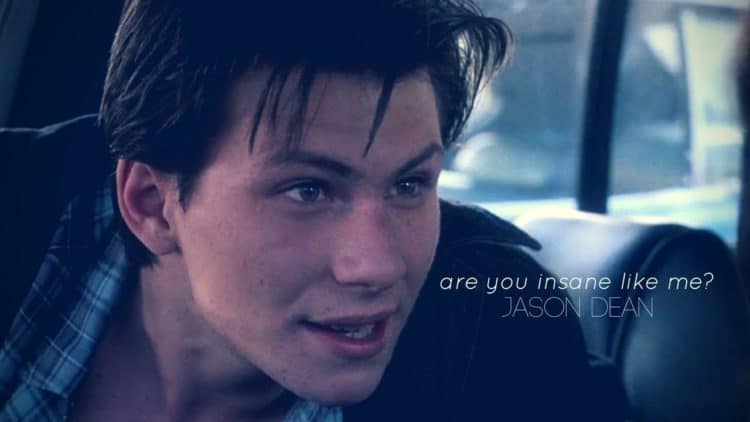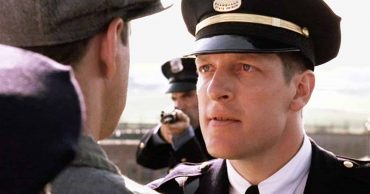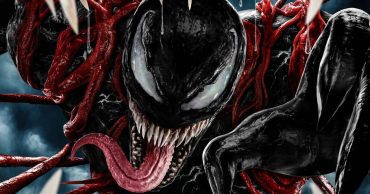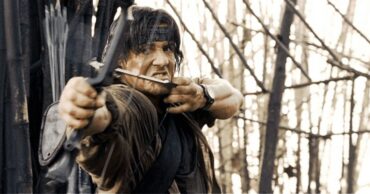
Heathers remains a timeless classic despite coming out three decades ago. It’s a cynical and darkly funny mockery of teen rom comedies starring Winona Ryder and Christian Slater as two outcasts who get revenge on a popular clique. However, Veronica isn’t a willing culprit of these murders and races to stop J.D. while she must deal with the new leader, Heather Duke. Heathers is more than about teenage emotions and body counts, but the subjects of suicide, peer pressure, and mental health play a key role in the message of the film. The latter is true for the film’s antagonist, Jason Dean; Behind the brown eyes and smooth talking is a manipulative, abusive, and emotionally damaged young man who’s been scarred by the loss of his mother. His relationship with his father isn’t any better. In fact, they act more like surfer friends than father and son.
To be clear, we completely understand the character of J.D., but the young man’s life is such a fascinating complexity that a spin-off documenting the character before meeting with Veronica should’ve happened. What’s great about Heathers is that its serious themes and messages are very sneaky thanks to clever dialogue and a cheeky sense of tone. Behind the coolness and allure of Jason Dean, the question of how this kid turned into a grade-A psychopath still lingers. Surely, J.D. didn’t wake up in the middle of the night and start shooting people because of his mother’s death? What happened prior to his mother’s death that caused such a drastic move? Was Bud – Jason’s father – abusive? It would explain why Jason is extremely controlling and abusive as well.
The odd dynamic between Bud is definitely an avenue to explore. At its core, Jason’s father is at fault for killing his mother, though by accident. Obviously, he didn’t know that his wife would walk into a building that he planned on blowing up. It’s understandable that Jason has some sort of resentment towards him. Jason doesn’t completely hate his father because he knows that it wasn’t his fault, but there’s a reason why he simply can’t connect with the only other family he has left. Why does Jason feel that killing is the proper solution to his problems? Did he bond with his mother because she was a serial killer too? Okay, so maybe the last sentence doesn’t ring true, but it showcases the endless possibilities of focusing on Jason’s life prior to meeting Veronica. Not every character needs some type of origin story to get a better insight on who they are, and Jason Dean is one of those people, but it’s an intriguing piece to study the mind of a psychopath.
One of the interesting moments in the film is when Veronica questions J.D. on whether he’s done this before, but he doesn’t give an answer. It’s one of those situations where it can be implied that he has done this before based of his glee and joy over the deaths of all the people he’s killed thus far but given how little experience he has over the situation, it could mean that he hasn’t as well. In some ways, Jason Dean feels like Jack, From The House That Jack Built. That movie is pretty intense, and the overall demeanor between the two murderers are different, but the ideology is somewhat similar. Both humans have little disregard for others. Extreme grief doesn’t make you become a murderer. There were signs from when he was a little boy surely. Just like Jack, who went from hurting animals to people. The trigger point may have been his mother’s death. Perhaps she was an angel in disguise, keeping Jason’s tendencies at bay or a guardian for a better term. This is also why I question whether she’s a serial killer too.
It’s always fascinating to see how people evolve as time goes by. It’s stunning that for such a deplorable character that Daniel Waters does an excellent job of crafting Jason Dean. You hate his actions, but you can understand them as well. He’s not just some psychopath who gets his sick thrills out of murdering others. One of the rare things in modern films is that movies tend to forget to give the antagonist some development as well. Your antagonist shapes your hero and if they’re not layered beings then neither will the protagonist. J.D. will live on in infamy as one of the best villains in cinema history. You may hate this brown eyed monster once he reveals his true colors, but you’ll always admire the smart commentary that came with Heathers.
 Follow Us
Follow Us




